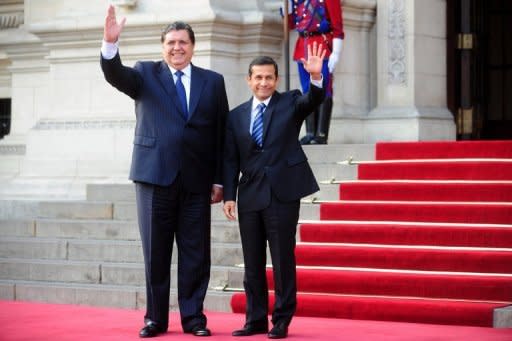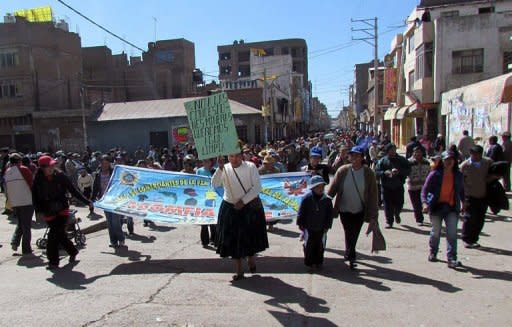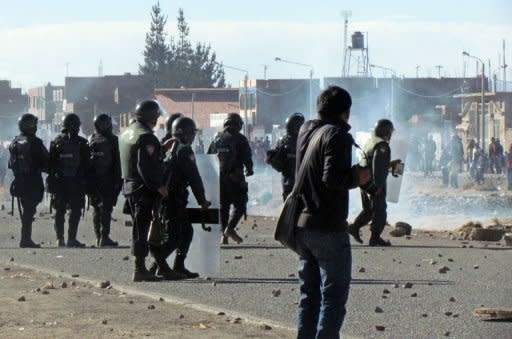Garcia promises peaceful transition amid deadly Peru unrest
Peru's President Alan Garcia on Saturday promised a peaceful transition for incoming president Ollanta Humala, amid anti-mining violence the day before that left five people dead and 30 injured. "There are important goals, the first of which is to ensure a peaceful transition and smooth start for the (Humala) government," Garcia said in a statement to the press. Garcia's statement came after the government revoked a silver mining concession that had been granted to Canada's Bear Creek Mining Corporation after hundreds of demonstrators protesting the mine tried to storm an airport in the south of the country on Friday. At least five protesters were killed when riot police fired tear gas and live ammunition to keep them from taking over the airport in Juliaca, in the province of Puno. Garcia's chief of staff and Peru's Justice Minister Rosario Fernandez said the government enacted five new laws, including a 36-month halt to all new mining concessions in Puno province, in a bid to satisfy the demands of locals opposed to mining activity in the region, state news agency Andina said. Hundreds of protesters remained in the main square of Juliaca on Saturday, despite the five deaths and the government decision to revoke the Bear Creek concession. Although the demonstrators were peaceful, authorities said shopkeepers had shut their doors in anticipation of any looting. The airport is the main gateway to Lake Titicaca, which sits on the Peru and Bolivian border and is a major international tourist attraction. The violence comes in the final weeks of the presidency of Alan Garcia, who hands power to leftist president-elect Humala on July 28. Garcia is leaving so many unsolved social problems that Humala recently pleaded with him to address the most pressing issues and "not give us a mine field." Business leaders criticized the move, with Alfonso Garcia Miro, president of Peru's Foreign Commerce Society -- Comex Peru -- saying the the new laws were "a bad sign for investors." "We've had a bad political time (recently) and the worst thing we can do is to give a sign that Peru is against investment," he said." Others commentators slammed the Lima government for buckling, and warned of the precedent it set. "The government should not yield to this pressure" from protesters, insisted former interior minister Fernando Rospigliosi, in comments to the Peru21 newspaper. "Surely other departments (provinces) will follow suit, and Peru will be without mining," he added. The province of Puno has been in the grips of a wave of protests against mining projects in the region, led primarily by indigenous Aymara people, the majority ethnic group in this part of the country. Activists have demanded an end to mining activity and oil drilling in Puno, one of Peru's poorest areas, insisting the operations pollute the land and waterways, leave few local benefits, and that the concessions were granted without consulting local interests. For three weeks in May, protesters blocked vehicle traffic between Peru and Bolivia, and then cut off all access to the city of Puno, population 120,000, for a week. Protests have since spread to the provinces of Azangaro, Melgar and now the city of Juliaca. The mining protests began as a demand to revoke the silver mining concession granted to Bear Creek Mining in the community of Santa Ana. They then expanded to include opposition to other area mines, and now include opposition to the Inambari project, an ambitious plan to damn several Andean rivers and build what would become one of the largest hydroelectric power plants in South America. Peru is the world's largest silver producer, the second largest zinc and copper producer, and the fifth largest gold producer. Bear Creek says the Santa Ana project's proven and probable silver reserves stand at 63.2 million ounces.




